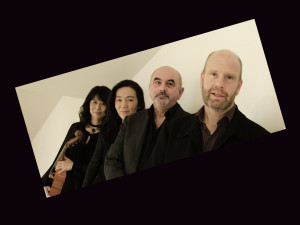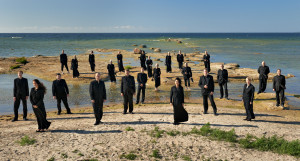It’s less than two weeks to the 2015 Vale of Glamorgan Festival. The Festival is quite a big event now and planning is ongoing. We trust that the 2015 Festival, barring minor adjustments, stands and all the main choices for 2016 have also already been made. 2017 is sketched, commissions have been committed to and planned for that year and for 2018. Ideas have been floated for 2019 and beyond. So these days when asked about what’s in front of my nose I have to take stock for a moment before responding and to remind myself that there are lot of exciting performances just days away.

Artistic planning for the Festival takes a very specific form. Living composers only of course – that makes the Festival remarkable in national and international terms – but also very much repertoire first. It sounds odd to say it but a lot of classical music programming is performer based. By contrast, Vale of Glamorgan is not only repertoire first, but also guided by a composer portrait approach. We chose up to three composers and explore their work in-depth, with threads leading from that exploration and – in case there is any danger that could become predictable, the occasional ‘rogue’ event. For details of the 2015 ‘rogue’ event please read to end of article!

The two principal featured composers in 2015 are at different stages of their creative journey. Arvo Part will be 80 this year and is arguably the best known and certainly one of the most performed composers in the world. The performances of his music will be given by outstanding performers associated with it, including the Estonian Philharmonic Chamber Choir and the Tallinn Chamber Orchestra. These same performers have recently attracted rave reviews in Beijing, Washington and New York and their joint concert at St. David’s Hall on May 23rd promises to be a thrilling finale to the Festival.
We have paired the music of Arvo Part with that of the 35-year-old, Bulgarian-born Dobrinka Tabakova. We think that the texturally sensuous and radiant sound world of her music, on the cusp between east and west, will resonate with that of Arvo Part and communicate directly with a new audience.

Supporting our composer focus are other international visitors, including the Nieuw Ensemble from Amsterdam and Soloists from China’s National Centre for the Performing Arts. In addition to Part and Tabakova they will play music by Chinese composers including world premieres from young composers Ye Yanchen and Xiao Ying commissioned by the Festival. 23 year-old Yanchen is not this year’s youngest Chinese composer ; that accolade goes to 16-year-old Erging Wang whose Paradise Drowned will be played by the Nieuw Ensemble.
Further evidence of the rich contemporary music environment in South Wales this May is the UK premiere of Richard Ayres’ opera Peter Pan by Welsh National Opera on May 16th. His music has been variously described as Pythonesque, exhilarating and anarchic. We have taken the opportunity, ahead of the opera premiere, to programme some of his concert music. So the Nieuw Ensemble in their second, (lunchtime) concert on May 14th will play No. 34b and the Francoise-Green Piano Duo include No. 35 (Overture) for piano duo, timpani and euphonium in their lunchtime concert on May 16. You’ll have gathered by now that all Richard Ayres’ pieces are numbered rather than titled.
A further programming thread for us is a “Young Artist in Residence’ initiative and this year that artist is one half of the Francoise-Green Duo, Penarth resident pianist Robin Green. Robin appears in three concerts for us ; as part of the duo, with the violinist Sara Trickey, and finally as a soloist in his own right. Not content with playing the piano Robin has also been brushing up his skills on the hurdy-gurdy for Dobrinka Tabakova’s Spinning a Yarn for violin and hurdy gurdy.
He’s also responsible for our ‘rogue’ event on Saturday May 23 when his lunchtime recital is entirely devoted to one of the great cult piano works of the last forty years – American composer Frederic Rzewski’s dazzling 53’ set of variations on the revolutionary 1960’s Chilean Song The People United Will Never Be Defeated.
Which brings me right up to the present. And I know I’m going happy to set aside my forward planning for a couple of weeks to enjoy this heady mix of new music.